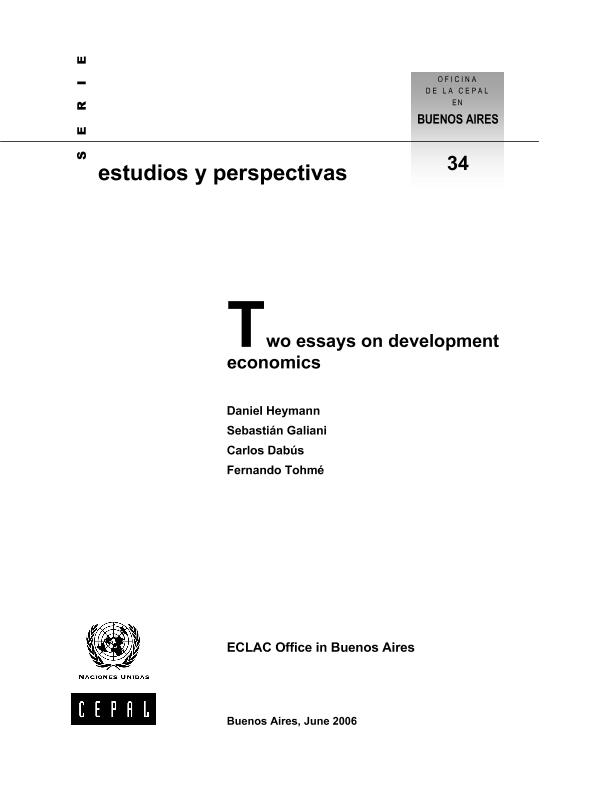Artículo
Land-Rich economies, education and economic development
Fecha de publicación:
06/2006
Editorial:
Naciones Unidas. Comisión Económica para América Latina y el Caribe
Revista:
Estudios y Perspectivas
ISSN:
1680-8797
e-ISSN:
1684-0356
ISBN:
92-1-121602-8
Idioma:
Inglés
Tipo de recurso:
Artículo publicado
Clasificación temática:
Resumen
We analyze the emergence of large-scale education systems in a framework where growth is associated with changes in the configuration of the economy. We model the incentives that the economic elite could have (collectively) to accept taxation destined to finance the education of credit-constrained workers. Contrary to previous work, in our model, this incentive does not necessarily arise from a complementarity between physical and human capital in manufacturing. Instead, we emphasize the demand for human-capitalintensive services by high-income groups. Our model seems capable to account for salient features of the development of Latin America in the nineteenth century, where, in particular, land-rich countries such as Argentina established an extensive public education system and developed a sophisticated service sector before starting significant manufacturing activities.
Palabras clave:
AGRICULTURE AND RURAL DEVELOPMENT
,
INDUSTRIAL DEVELOPMENT
Archivos asociados
Licencia
Identificadores
Colecciones
Articulos(IIESS)
Articulos de INST. DE INVESTIGACIONES ECONOMICAS Y SOCIALES DEL SUR
Articulos de INST. DE INVESTIGACIONES ECONOMICAS Y SOCIALES DEL SUR
Citación
Galiani, Sebastián; Heymann, Carlos Daniel; Dabús, Carlos Darío; Tohmé, Fernando Abel; Land-Rich economies, education and economic development; Naciones Unidas. Comisión Económica para América Latina y el Caribe; Estudios y Perspectivas; 34; 6-2006; 1-49
Compartir




